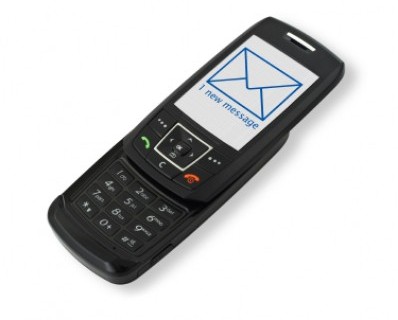‘Ramadan Kareem’: In Praise of the Pious Text Message
 One of my favourite modern Ramadan traditions is the pious text message. Somebody somewhere (sometimes you don’t even know who) really wants to help you in your religious devotion. And will spend money on messages to ensure you do.
One of my favourite modern Ramadan traditions is the pious text message. Somebody somewhere (sometimes you don’t even know who) really wants to help you in your religious devotion. And will spend money on messages to ensure you do.
I think the pious text message is fabulous – a bite-size treat of religiosity designed to perk up the believer.
Are you in a boring work meeting? An unsolicited message will ping up to advise you never to despair of God’s mercy. At the cinema? A quick SMS from an unrecognised number will remind you of the latest fund-raising dinner. Just managed to fall asleep after a hard day? You’ll be glad you didn’t turn your phone to silent, otherwise you would have missed the fifth message that night reminding you how to distribute your zakat payments.
This is a one-to-many activity. The rule of pious text message is that if the message you receive looks devout, it must be immediately forwarded to every Mulsim in your phone book. There’s no need to check the content for accuracy – it’s a pious text message!
The first Ramadan messages start arriving now to let you know, should you need reminding, that Ramadan is soon upon us.
Next up is the “has the moon been sighted?” frenzy. Messages go backwards and forwards, mostly contradicting each other about where, when, how and by whom the crescent moon that marks the start of Ramadan has or has not been seen.
Your devotion is then encouraged with verses of the Quran, reminders of what to say when breaking the fast, tips on where to go in the evenings; mosques, of course, not restaurants. And the frenzy peaks as the final 10 nights of Ramadan approach when your phone turns into a vibrating gremlin with “Remember us in your prayers” messages.
Finally, we reach the controversy on what day Eid should be celebrated and subsequent best wishes.
Luckily, the pious text message is not just for Ramadan. Special religious occasions will induce a flurry of prayers. Catastrophes trigger messages requesting donations. And of course Friday, the day of “jum’a” has its own round of “Jum’a Mubarak” wishes coupled with sayings of the Prophet.
What could be more wonderful than piety delivered direct to your phone?
Well, it seems some are ruffled by the “jum’a mubarak” text message turning into a weekly activity by the faithful, akin to a religious duty. It’s unlikely in my view, as text messaging isn’t mentioned in the Quran or hadith, but nonetheless they’ve posed their question to scholars, some of whom are of the view that this could be an “innovation” and therefore not permitted by Islam. Their scholarly response to the Friday Pious Text Message is to ensure messages are sent on other days also.
I do wonder who starts off the chains of messages. I’ve never created an original one, have you? But if you’d like to start a fresh line of distribution there are plenty of websites to give you ideas.
Remember, your messages are not just for the greater good of the faithful. They help keep the telecoms companies in business too.



You must be logged in to post a comment Login